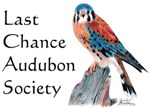SEPTEMBER 2023 PROGRAM
Sharp-tailed Grouse Restoration in Western Montana
Presenter: Ty Smucker

Photo by Bob Martinka
Tues, Sept 12, 2023 – 7:00PM
Montana Wild, 2668 Broadwater Ave.
Free – All Are Welcome
Montana Fish, Wildlife and Parks (FWP) and partners are working to re-establish sharp-tailed grouse (STGR) populations west of the Continental Divide through reintroductions to suitable habitat in the Blackfoot, Bitterroot, and Drummond areas. Over a decade of planning, including developing a Restoration Plan with Montana State University and an Environmental Assessment, resulted in the FWP Commission approving the project in April 2019. Spring 2023 was the first full season of capturing and translocating sharp-tailed grouse from eastern Montana to restoration sites in western Montana. Despite a prolonged winter/late spring, the team of grouse wranglers managed to capture 144 grouse that were transported by volunteers and released in the Bitterroot and Blackfoot Valleys. Monitoring of their survival and reproduction is ongoing, but field staff confirmed at least 22 nests, half of which successfully fledged young. Details about the restoration project, plans for maximizing success moving forward, and how folks can help, will be discussed.
Ty Smucker is an avid birder and Wildlife Mitigation Biologist with Montana FWP, based in Helena. Ty has lived in Montana for over 25 years, completing his Master’s in Wildlife Biology at the University of Montana in 2007 and has since worked in seasonal and permanent positions with FWP. He has worked on various wildlife research, monitoring, and restoration projects including studies of introduced predators and their effects on native birds in the Hawaiian Islands, Canada lynx and their prey in the Seeley-Swan Valley of Montana, spectacled bears in the Ecuadorian Andes, and wolves in Wisconsin, Minnesota, Yellowstone National Park, and Montana. Ty is most interested in wildlife conservation and management, understanding predator-prey interactions and resolving human-wildlife conflicts.



